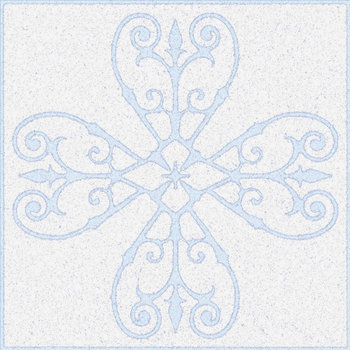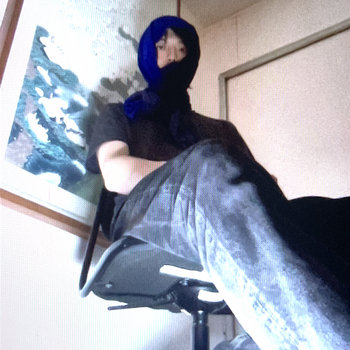
It seems Seoul’s ‘00s generation are coming into their own: While alt-K-pop collective Balming Tiger are bringing star power to avant-rap, their underground contemporaries are coalescing around the label Junghee Hong the imprint that’s helping to push the city’s latent talent into the spotlight. Founded in 2021, SSS has already been recognized by the Korean Music Awards, dominating the Electronic Music categories with three nominations and one win for Mount XLR’s “Oving.”
The label was born on the internet, where co-founder Choi Jongbin—or cjb95—would discuss releases and exchange feedback with a burgeoning scene of young producers. The artists with whom Jongbin would start SSS were all on their own musical journeys: Choi Minseok was interested in R&B and soul; Shin Dohoon grew up with an older brother making RPGMaker games and OSTs with FL Studio; Kim Eunseo was inspired by local indie labels like YOUNG,GIFTED&WACK. But the label’s aesthetic consolidated around slick, minimal designs and forward-looking music that intersected hip-hop with electronic music.


For Jongbin, hearing Common’s Like Water for Chocolate was a turning point. Visiting fellow producer Arwwae’s studio in the Yeongdeungpo neighborhood, he was turned on to the world of sample-based hip-hop. From there, he discovered Warp, Stones Throw, and Ninja Tune. “Projects like Warp20, Chrome Children, and Ninja Cuts–Flexistentialism left a deep impression on me, not only musically but also when it comes to their artwork and overall curation,” he says.
Jongbin built up connections organically through his solo work and his trip-hop project with Wona, Stainus. Eventually, he’d work with artists like Leesuho (Balming Tiger) and Simo (Y2K92). “My first experience working as a producer with another artist was on Leesuho’s album Entertain,” Jongbin says. “I learned a lot about how to arrange tracks in interesting ways, the visual approach to creating artwork, and how to plan and produce physical records.”
When SSS finally launched in 2021, Seoul’s godfather of hip-hop and turntablism DJ Soulscape helped them out with a guest spot on his Worldwide FM radio show. “At that time, we had just started the label, and nothing was really set in stone,” says Jongbin. “It was a memorable and meaningful experience, because I was able to collaborate with Kim Doeon, Scorched Evrth, Mount XLR, and Wona.”


Since then, it’s been a steady come-up for the crew: along with a steady clip of releases, they’ve hosted a series of in-person events, including a 2022 release party for Leesuho’s Monika and a few shows in Tokyo last year. “Being able to host performances in Japan, a country I’ve loved for a long time, was truly a dream come true,” says Jongbin. “Another special memory is having some of our albums sold at Disk Union, a shop I’ve known and loved since childhood.”
This is the story of the last four years of SSS, told through some highlights of their catalog.


For SCA1, Jongbin gathered his online compatriots on what was essentially a lark. “At the time, I didn’t initially intend to start a label,” he says. “It all began quite organically, as a fun collaboration with friends I had connected with, like Leesuho, Kim Doeon, easymind, ccr, and the designer Junghee Hong. I wanted to include a variety of styles, so I also reached out to artists I admired, such as Jeon Kwangjae, Y2K92, and Beautiful Disco, and we ended up working together.”

 . 00:10 / 00:58
. 00:10 / 00:58 
It was a demo from Scorched Evrth that convinced Jongbin to start a full-fledged label. “When I listened to the track ‘Hiking,’ I strongly felt that there should be a label in Seoul where this kind of music—which I thought was great—could be continuously released,” he says. “Along with the demo album, Scorched Evrth sent me a documentary about mountains that aired on the BBC. As I watched the documentary while listening to that track, I felt like everything was being explained, even though the track is an instrumental.”
Watery percussion, wispy falsetto, woody guitars—the tension between artificial and natural textures in “Hiking” awakened something in Jongbin. “The feeling was so intense that I wanted to bring the ‘artificial ecosystem’ in Scorched Evrth’s music to life,” he says. “I spent a long time making actual physical objects, such as artificial grass, soil, and mountains. That ultimately led to the album’s artwork. It was a project where music and visuals were organically connected, and it remains a project I am personally very fond of.”


Physic, Mount XLR’s (Kwangjae Jeon) most recent opus, takes synth arpeggios to new heights. Although opener “Oving” earned SSS their first Korean Music Award for Best Electronic Track, “Ivorn” is the highlight here, with tendrils of synthesized tones and textures spiralling in all directions, tracing an emotional journey over a delicate falsetto vocal. After proving his skill in crafting bass-heavy belters, Jeon aims to push his own sonic palette further afield on Physic.

 . 00:10 / 00:58
. 00:10 / 00:58 
The second part of SCA1 reveals even more of SSS’s curatorial skill. Newcomers like Scorched Evrth sit comfortably alongside more established producers like FRNK (of XXX) and finger-drumming prodigy Lionclad. The tracks here are whimsical and mysterious: pitched-up vocals splatter like paint across cotton-candy synths and wonky beats (the one exception being Wona’s hardcore screamer “Salty Malcolm”). The highlight, however, is Kimsiyun’s “감기약 (Tylenol Cold),” which sketches out some of the faux-naturescapes that would provide Kim Doeon’s Damage with much of its textural wonder—before quickly accelerating into a drum & bass anthem.

 . 00:10 / 00:58
. 00:10 / 00:58 
If dungeon synth explores the diabolical depths that fantasy worlds can conjure, Damage by Kim Doeon represents its inverse: soaring sonic mystique that evokes environments like Orbis or the Kingdom of Zeal. While Korean folktronica is bound to draw comparisons to Mid-Air Thief, Kim’s sound more directly embraces its videogame inspirations, even as it is both less hermetic and anonymous. Kim enlists local legends across generations, like Lee Lang, So!YoON! (of Se So Neon), Minwhi Lee, Rad Museum, eAeon (of mot), Kim Hanjoo, and Fisherman to populate his weightless sound worlds. Tracks like “SaGA” and “Portal” evoke video game OSTs in their titles and repetitive structures, yet incorporate canned MIDI sounds alongside fulsome percussion to create a soundscape analogue to AR.


SSS was a natural place for visual artist and musician Hwang Hwi (HWI) to release her first full-length album. Advancing the cyborg aesthetics of the eobchae art collective, of which HWI is a member, humanly possible is a post-apocalyptic pop opera. Her voice floats through low-gravity instrumentals, contorting digitally and physically: “La-ga-da-di-do” is a lumbering dubstep elegy, while “New Man” features a glitched-out polyrhythm orbiting around a ticking timer.


HIGA is a band, yet their dancey and dreamy deconstruction of the band format, à la A.R. Kane, places them in good company with the rest of SSS’s artists. “This album is a work that I believe broadened the scope of our catalog,” says SSS designer Kim Eunseo. “When I first heard the demo, I thought the music was great and the album’s concept was intriguing, so I was really happy to be able to work on it.” Dissonant riffs chug alongside a breakbeat on “Dreamer”; a head-scratching polyrhythm gives way to a trip-hop breakdown on “Aisle”; guitar lines meander with a light electronic hum before distorted shouts burst forth on “1”; the piano ballad “Hollow” creates a moment of respite; “Outro” brings things to a close with minimalistic, dubby atmospheres. None of these songs sounds like the other, yet they coalesce into one of SSS’s most interesting records.


While SSS’s releases are typically slick and polished productions—from mixing to jacket design—ccr’s mixtape s e o u l r e p ( 2 0 2 2 ) is a DIY effort through and through. In a scene known for its lightning-quick trends and ostentatious performances, ccr’s understated flow and subtle beats are in a lane of their own. “Background music choppa” foreshadows the deteriorated muzak samples that drive much of the record’s sound, while shades of DJ Screw surface in the codeine haze of tracks like “be ready by 2022.”


Wona, on the other hand, sets loose her maximalist speed demon on Happy Trippy Creepy. While her debut record for NBDKNW was dark and brooding, Happy Trippy Creepy turns up the chaos, culminating in supercharged rave workouts like “LIL SSANAI” and “GO!” At other points, Wona sounds like a more grotesque x/o, opting for thicker, muddier distortion to contrast with her haunting vocals. Drawing rhythmically from the grimier ends of the hardcore continuum, tracks like “Where is the Glass” and “Dream” demonstrate Wona’s knack for crafting dread through sound.


Commissioned by Post Archive Faction for their flagship store in Seoul, Roomscape is SSS’s answer to kankyo ongaku (環境音楽). Seven hours of ambience crafted by Inwoo Jung, Kim Doeon, tibslc, and Kim Hanjoo (of Silica Gel), Roomscapes is the musical equivalent of PAF’s stylish minimalism: muted tones, graceful synth silhouettes, gestures at form that arc through space. Had South Korea been flush with the same corporate investment as bubble-era Japan—and not, say, been recovering from the economic devastation of war under an authoritarian regime—these kinds of sounds might have graced retail environments like the Midopa Department Store in the ‘80s. Yet it’s not a mere copy of Western or Japanese Minimalism; there’s a unique collaborative spirit that cuts across national and scene boundaries in this project led by Cologne-based Jung.

 . 00:10 / 00:58
. 00:10 / 00:58 
Cerebral beatmaker oddeen maps out a bit of his bassy musical world on his debut. These are anything but stock beats: Oddball tracks like “Baby Casket” channel a bit of the bouncy synthesis of CLAM without devolving into deconstructed madness; “Broken Walk,” on the other hand, staggers and swings through synthesized twinkle, like the best from Flume’s more wonky mixtapes. “Ohhu” foreshadows his work to come, showing some of the crystalline tones and MIDI strings that would characterize the label of the same name that he would co-found a year later with easymind.










:max_bytes(150000):strip_icc()/Parents-SupermanMovieTrailer-b216b7f3a5a0442f9aec56736b5a3d7b.jpg)
